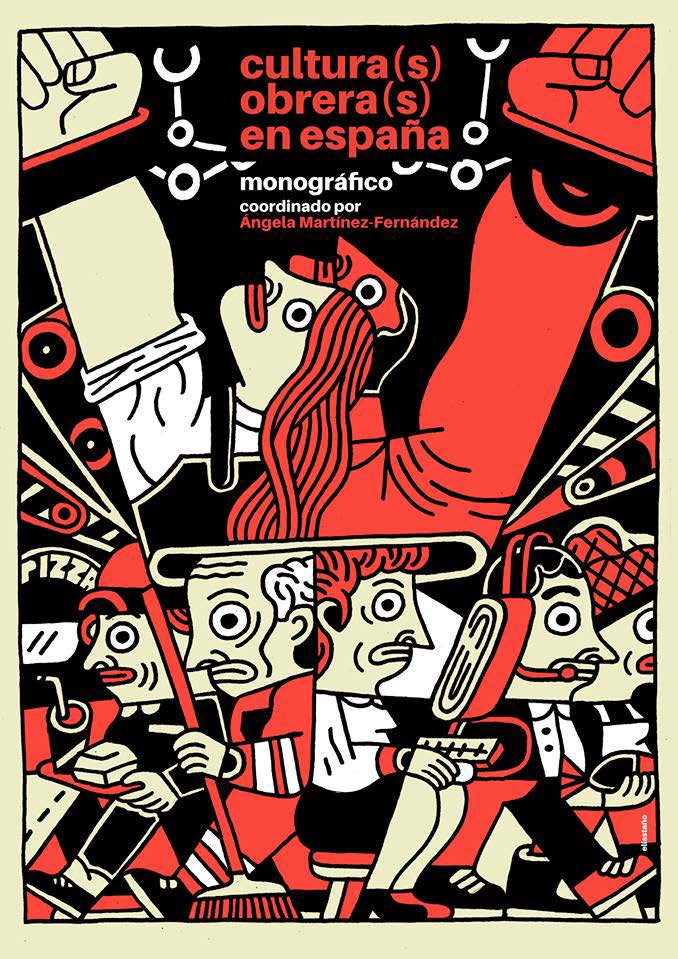Cancer and identity. The appearance of this disease in the life of the affected people
DOI:
https://doi.org/10.7203/KAM.14.13897Keywords:
Cáncer, Identidad, Enfermedad, Biografía. Abstract
Abstract
Through this text I try to analyze the appearance of the diagnosis of cancer in the social context of the affected person, using for this three theoretical points: (1) The irruption of the disease as a critical event within the life of the affected person. (2) The development of a process of identification, understanding the affected person as a reflective individual capable of facing the bankruptcy of old referents. And, finally, (3) the ideal of a healthy person as a unit of analysis derived from all the above, understanding as such a normative and autonomous individual with respect to whom the diagnosed person assimilates his new position. The articulation of these three elements, together with other components developed around my situation as a person familiar with the process I try to analyze, have been determining factors in the development of a parallel methodology. Resorting to two different research techniques: a first self-ethnographic work developed during and after my own experience, accompanied by the subsequent realization of in-depth interviews based on the idea of a biographical story. Taking into account three main analysis scales: the intimate sphere, the primary socialization group and the hospital institution.
 Downloads
Downloads
 References
References
Béjar, Helena (1990). El ámbito íntimo. privacidad, individualismo y modernidad. Madrid: Alianza Universidad.
Bourdieu, Pierre (2007). Razones prácticas. Sobre una teoría de la acción. Barcelona: Anagrama.
Butler, Judith (2017). Cuerpos aliados y lucha política. Hacia una teoría performativa de la asamblea. Bogotá: Paidos.
Butler, Judith (2007). El género en disputa. El feminismo y la subversión de la identidad. Barcelona: Paidos.
Camus, Albert (2004). La peste. Barcelona: Edhasa.
Donzelot, Jacques (1994). La invención de lo social. Ensayo sobre la declinación de las pasiones políticas. Buenos Aires: Nueva Visión.
Dubet, François (2013). ¿Para qué sirve realmente un sociólogo? Madrid: Siglo Veintiuno.
Dubet, François (2010). Sociología de la experiencia. Madrid: Universidad Complutense de Madrid.
Durkheim, Émile (1987). La división social del trabajo. Madrid: Akal.
Durkheim, Émile (1978). Las reglas del método sociológico. Madrid: Morata.
Esteban, Mari Luz (2017). “Los cuidados, un concepto central en la teoría feminista: aportaciones, riesgos y diálogos con la antropología”. Quaderns-e Nº22.2 (2017): 33-48.
Fauvert-Saada, Jeanne (2013). “Ser afectado como medio de conocimiento en el trabajo de campo antropológico”. Avá. Revista de Antropología Nº23 (2013): 49-67.
Foucault, Michel (2016). Historia de la sexualidad I. La voluntad del saber. Madrid: Siglo XXI.
Foucault, Michel (2001). Los anormales. Madrid: Akal.
Gatti, Gabriel (2008). El detenido-desaparecido. Narrativas posibles para una catástrofe de la identidad. Montevideo: Trilce.
Giorgi, Gabriel. “Política del monstruo”. Revista Iberoamericana Nº 227 (2009): 323-329. (doi.org/10.5195/reviberoamer.2009.6575)
Giorgi, Gabriel. “Políticas de la supervivencia”. Kamchatka. Revista de análisis cultural 10 (2017): 249-260. (dx.doi.org/10.7293/kam.10.10634) (ojs.uv.es/index.php/kamchatka/article/view/10634)
Hall, Stuart y Du Gay, Paul (eds.) (2003). Cuestiones de identidad cultural. Madrid: Amorrurtu.
Haraway, Donna (1995). Ciencia, cyborgs y mujeres. La reinvención de la naturaleza. Madrid: Cátedra.
Ibáñez, Jesús (1985). Del algoritmo al sujeto. Perspectivas de la investigación social. Madrid: Siglo Veintiuno.
Moliner, Pascale y Legarreta, Matxalen. “Subjetividad y materialidad del cuidado: ética, trabajo y proyecto político”. Papeles del CEIC Nº1 (2016). (dx.doi.org/10.1387/pceic.16084)
Molinier, Pascale. “Trabajo y compasión en el mundo hospitalario. Una aproximación a través de la psicodinámica de trabajo”. Cuadernos de Relaciones Laborales Nº2 (2008): 121-138.
Organización Mundial de la Salud. ww.who.int. (2018): www.who.int/topics/cancer/en/
Parsons, Talcott (1982). El sistema social. Madrid: Alianza Universidad.
Patterson, Orlando (1982). Slavery and social death. A comparative study. Cambridge: Harvard University Press.
Marzouk, Kais (2009). Acontecimiento. Reyes, Roman (ed.). Diccionario Crítico de Ciencias Sociales. Madrid: Plaza y Valdés.
Simmel, George (2010). El secreto y las sociedades secretas. Madrid: Sequitur.
Simmel, George (1986). Sociología. Estudios sobre las formas de socialización. Madrid: Alianza Editorial.
Sontag, Susan (2016). La enfermedad y sus metáforas. El sida y sus metáforas. Barcelona: Debolsillo.
Torrano, Andrea “Por una comunidad de monstruos”. Caja Muda Nº 4 (2013) (www.revistacajamuda.net/text/4/por_una_comunidad_de_monstruos.html)
Vecchioli, Virginia. “Resenha: Das, Veena. 1995. Critical Events: An Anthropological Perspective on Contemporary India. New Delhi: Oxford University Press. 230 pp”. Mana 6 (2000) (dx.doi.org/10.1590/S0104-93132000000200012)
WATZLAWICK, Paul, BEAVIN, Janet y JACKSON, Don (1989). Teoría de la comunicación humana. Barcelona: Herder.
Woolf, Virginia (2014). De la enfermedad. Barcelona: Centellas.
Downloads
Published
How to Cite
-
Abstract1069
-
Artículo (Español)596
Issue
Section
License
This journal provides an immediate free access to the content on the principle that freely make investigation available to the public, which promotes an increased global knowledge exchange.
Unless otherwise indicated, texts published in this journal are under the license Attribution-NonComercial 4.0 by Creative Commons. These texts may be copied, distributed and publicly communicated whenever the publication’s author and title are quoted and whenever they are not used for commercial purposes. In any case, intellectual property of the articles and its potential economic rights entirely belong to its authors.
The full license can be consulted on https://creativecommons.org/licenses/by-nc/4.0/. We encourage authors to disseminate papers published in Kamchatka. Journal of cultural analysis electronically, in institutional digital repository or in their websites.





